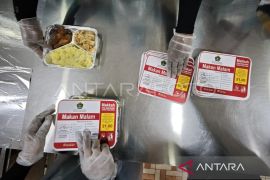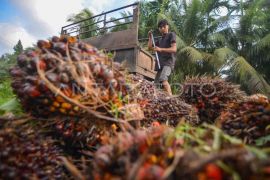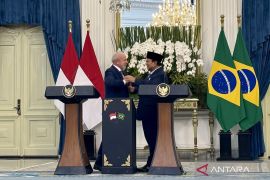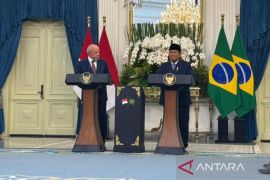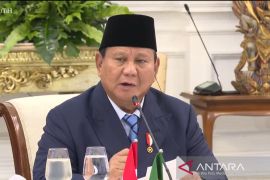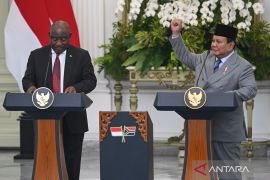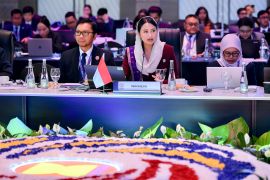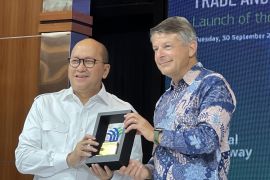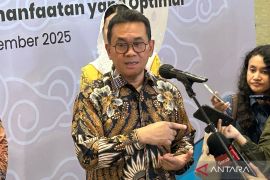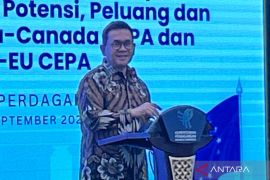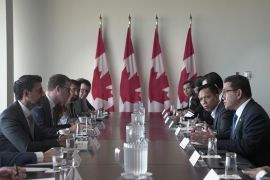The IA-CEPA creates a framework for Australia and Indonesia to unlock the vast potential of the bilateral economic partnership, fostering economic cooperation between businesses, communities and individuals.
On March 4, 2019, the IAPA was officially signed by Indonesian Minister of Trade Enggartiasto Lukita and Australian Minister of Trade, Tourism, and Investment Simon Birmingham in Jakarta.
The agreement had been negotiated since 2010 but was halted until November 2013. Later, in March 2016, the agreement was reactivated.
"The signing of this agreement is very valuable. After six years of consideration, the Indonesia, Australia CEPA can be signed," Lukita stated, adding that it also reflects the strong economic bond between the two countries.
The IA-CEPA will erase 100 percent goods tariff rate from Indonesia to Australia, and 94 percent goods tariff rate from Australia to Indonesia.
By signing the agreement, both Indonesia and Australia will gain benefits, such as The Indonesian Fast Moving Consumer Goods (FCMG) market, which is expected to benefit from Australia's cheaper sugar, while Indonesian pesticides will be more competitive in Australian market.
Indonesian Industry Minister Airlangga Hartarto views the signing of the agreement as a new milestone in the Indonesian and Australian bilateral relations.
"The coverage of CEPA will have a positive impact on the Indonesian and Australian economies in the long term," Hartarto noted.
The CEPA not only covers agreements on trade, services, and investment but also on wider economic cooperation.
The minister said the IA-CEPA is special, as it has involved the private sector since the start of its negotiation.
The Indonesia-Australia Business Partnership Group (IA-BPG) has offered views and inputs during the negotiation process and a feasibility study of the IA-CEPA since the initiation of the talks.
Hartarto expressed hope that the involvement of private sector businessmen will continue to increase following the signing of the agreement.
Through the IA-CEPA, the partnership concept will make Indonesia and Australia an economic powerhouse, notably a collaboration of the two countries' comparative excellence to boost export productivity and competitiveness in third counties.
Moreover, in the service and investment fields, the IA-CEPA will provide a stimulus for Indonesian investors to invest their money in the higher education field and vocation, particularly related to culinary arts.
Australia's investment will upgrade the quality of Indonesian human resources in the processed food industry in Indonesia.
Indonesia's workers will also receive facilities to obtain work holiday and training visas in Australia.
Under the IA-CEPA framework, the two countries will have an opportunity to establish economic cooperation in developing a food innovation center that will provide input from food research to Indonesia's processed food industry.
In addition to, the Indonesian manufacturing industry will have a greater chance to increase exports to Australia.
Indonesia's exports to Australia will increase as Australia has committed itself to eliminate import duties to 0 percent for all postal tariffs.
Among the Indonesian commodities whose exports could be increased are automotive products (particularly electric and hybrid cars); wood and its derivatives, including furniture; textiles and textile products; tires; communication instruments; medicines; and electronics.
The agreement provides easier local content qualifications for Indonesia's electric and hybrid cars, so that the Indonesian automotive industry can export electric and hybrid cars without having to build all production technology and facilities from zero.
"The manufactured goods that we are trying to spur their exports are textiles, clothing and footwear. Today, Indonesia's key exports to Australia include furniture, rubber products, processed chemicals, foods and beverages, textiles, and electronics," he pointed out.
The IA-CEPA will also further enhance several business channels, including Australian agricultural exports, and Indonesian paper and palm oil exports.
Besides, investment and service sectors, such as health and education, are also covered in the agreement.
"The two countries will build partnership that combines service and partnership in sectors attractive for Indonesia, such as the health and education sector, as well as training," Indonesian Vice President M Jusuf Kalla said while witnessing the signing of the agreement.
In the service sector, the two countries will explore cooperation in the sectors of mining, energy, iron and steel, finance, vocational and higher education, tourism, health, and agribusiness.
Investment in the vocational and higher education sector has become one focus of cooperation to improve the quality of human resources.
"The next major agenda for Indonesia is to improve the quality of human resources to make us more competitive. I am waiting for investment in university and training and vocational education in Indonesia," he elaborated.
The vice president has expressed hope that the agreement would enhance bilateral ties and open wider business opportunities for people in both countries.
The IA-CEPA is a different agreement from those we have with other countries. IA-CEPA is based on strategic aims to grow together as neighboring countries, according to Kalla.
He expressed his optimism that CEPA between Indonesia and Australia can be a new milestone in improving bilateral relations between the two countries, and a symbol of mutually beneficial partnership, not only for today but also for the future.
Establishing partnership with Australia is important for Indonesia, considering that both countries have geographical and economic closeness.
(f001/S012)
***1***
Reporter: Fardah
Editor: Suharto
Copyright © ANTARA 2019

